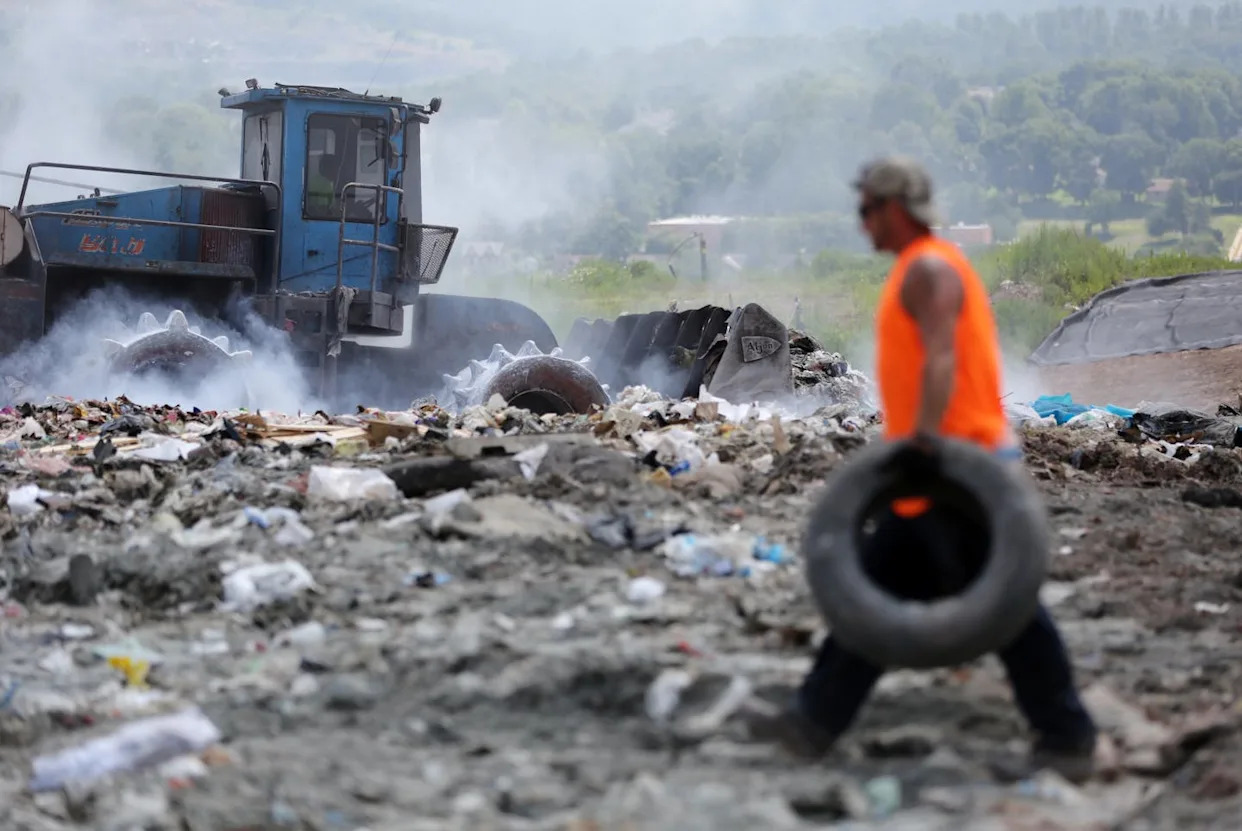Science
Should We Send Our Garbage to Space? Exploring Feasible Solutions

The accumulation of waste on Earth has led to a pressing question: could future generations find themselves sending garbage into space due to a lack of room on our planet? This inquiry comes from Aiden, a 13-year-old from Maryland Heights, Missouri, and reflects a growing concern about the state of our environment.
Since the Industrial Revolution, humanity has produced approximately 30 trillion tons of materials, many of which contribute to the waste crisis we face today. Currently, people generate around 350 million tons of waste every day globally. Unfortunately, a significant portion of this waste is poorly managed, often ending up in landfills, waterways, and open dumps. This mismanagement exposes communities to serious health risks and has detrimental effects on ecosystems, including the pollution of oceans.
Space Waste Disposal: An Overview
The idea of sending waste into space may initially seem far-fetched, but researchers have proposed it, primarily regarding hazardous materials like used radioactive fuel rods from nuclear power plants. Nuclear waste poses a long-term hazard, remaining dangerous for tens of thousands of years. Unfortunately, current disposal methods on Earth have been inadequate, leading to serious safety concerns.
Despite the theoretical benefits, such proposals face numerous challenges. One notable risk involves the potential for rockets carrying hazardous materials to explode during launch, creating catastrophic consequences. Financially, the costs of space disposal would be astronomical compared to the existing expenses associated with safe storage on Earth. Additionally, Earth’s orbit is already home to a significant amount of “space junk,” including over 500,000 pieces of debris, according to NASA. This existing clutter poses a collision risk for spacecraft, suggesting it would be imprudent to exacerbate the problem further.
Effective Waste Management Solutions
Instead of looking to space for waste solutions, experts advocate for reducing the amount of garbage generated on Earth. Governments play a crucial role in implementing policies that encourage sustainable practices, such as limiting single-use plastic bags. However, individuals can also take significant steps to minimize waste in their daily lives.
The principle of the “3 Rs”—reduce, reuse, recycle—serves as a foundational approach to managing waste. To reduce waste, individuals are encouraged to opt for reusable items, such as mugs and shopping bags, rather than disposable options. Many communities have adopted regulations promoting these practices.
Composting is another effective strategy for managing organic waste. Communities can collect food scraps and yard trimmings to create compost, which serves as a valuable fertilizer. Many people also engage in home composting, further reducing their waste footprint.
Reusing products by purchasing secondhand goods and donating items that are still usable can significantly decrease waste. Initiatives like Freecycle networks facilitate the exchange of unwanted items, promoting a culture of reuse within communities. Recycling is equally important; materials such as paper, glass, and certain plastics can be recycled effectively, reducing the need for new raw materials and helping to combat climate change.
In the United States, nearly one-third of municipal solid waste was either recycled or composted in 2018. While some items, like plastic bags, are challenging to recycle, others, such as aluminum cans and cardboard, have higher recycling rates. Understanding local recycling rules is essential, as they can vary widely across regions.
Beyond the basic three Rs, additional strategies such as repairing and reimagining consumption habits contribute to waste reduction. The growing movement advocating for the right to repair emphasizes providing consumers with access to information and parts to fix their own products, from electronics to vehicles. This shift could challenge the prevailing notion that buying new is the only option.
In conclusion, while the prospect of sending waste into space raises intriguing possibilities, practical and effective waste management solutions already exist on Earth. By adopting sustainable practices, individuals and communities can make significant strides in reducing waste. Engaging with these approaches not only benefits the environment but also fosters a culture of responsibility and sustainability.
For those curious to learn more about waste management or other environmental issues, experts welcome questions from young learners. Contributions can be sent to [email protected], including the child’s name, age, and city of residence.
This article is based on insights from Kate O’Neill from the University of California, Berkeley, and aims to shed light on the challenges and solutions surrounding waste management.
-

 Lifestyle4 months ago
Lifestyle4 months agoLibraries Challenge Rising E-Book Costs Amid Growing Demand
-

 Sports3 months ago
Sports3 months agoTyreek Hill Responds to Tua Tagovailoa’s Comments on Team Dynamics
-

 Sports3 months ago
Sports3 months agoLiverpool Secures Agreement to Sign Young Striker Will Wright
-

 Lifestyle3 months ago
Lifestyle3 months agoSave Your Split Tomatoes: Expert Tips for Gardeners
-

 Lifestyle3 months ago
Lifestyle3 months agoPrincess Beatrice’s Daughter Athena Joins Siblings at London Parade
-

 World3 months ago
World3 months agoWinter Storms Lash New South Wales with Snow, Flood Risks
-

 Science4 months ago
Science4 months agoTrump Administration Moves to Repeal Key Climate Regulation
-

 Science3 months ago
Science3 months agoSan Francisco Hosts Unique Contest to Identify “Performative Males”
-

 Business4 months ago
Business4 months agoSoFi Technologies Shares Slip 2% Following Insider Stock Sale
-

 Science4 months ago
Science4 months agoNew Tool Reveals Link Between Horse Coat Condition and Parasites
-

 Sports4 months ago
Sports4 months agoElon Musk Sculpture Travels From Utah to Yosemite National Park
-

 Science4 months ago
Science4 months agoNew Study Confirms Humans Transported Stonehenge Bluestones









